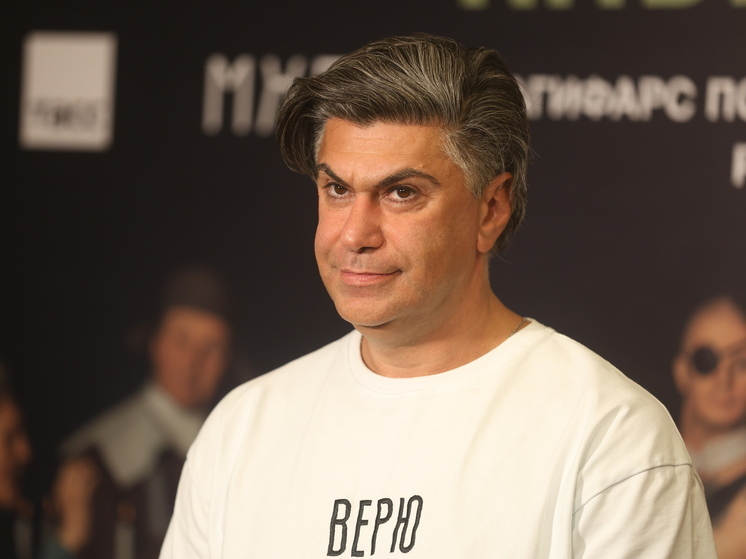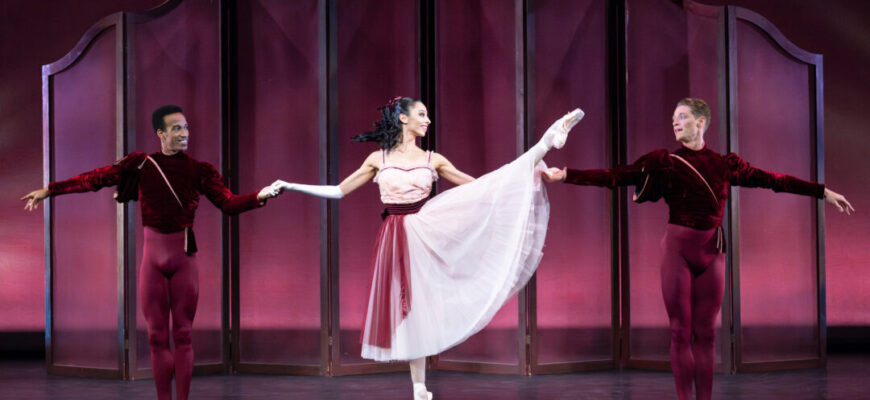For decades, the name Nikolai Tsiskaridze has been synonymous with balletic grace, a towering figure whose every movement on stage was a testament to meticulous training and profound artistry. As a former premier dancer of the Bolshoi Theatre and the current head of the Vaganova Academy of Russian Ballet, his world has been defined by pirouettes and grand jetés. Yet, a recent announcement has sent ripples through the cultural sphere: Tsiskaridze has made an audacious leap into dramatic theatre, debuting as King Louis XIV in Konstantin Khabensky`s new production of Molière`s “Cabal of Hypocrites” at the Chekhov Moscow Art Theatre.

Nikolai Tsiskaridze in his new dramatic role as King Louis XIV.
The Unexpected Royal Summons
The news is particularly striking given Tsiskaridze`s previous staunch pronouncements about remaining exclusively within the realm of ballet. “I must have lost my mind!” he reportedly confessed, acknowledging the significant departure from his established path. However, a single phone call from Konstantin Khabensky, the acclaimed actor and artistic director of the Chekhov Moscow Art Theatre, proved to be the turning point.
“If anyone else had called, even a highly respected artist, I would have refused,” Tsiskaridze shared with a smile. “But Khabensky called, and I said `yes`.”
This unlikely partnership has swiftly become one of the season`s most talked-about sensations. Khabensky, a master of dramatic nuance, embodies Molière, while Tsiskaridze, with his inherent regal bearing, takes on the Sun King. It`s a fascinating convergence of two distinct artistic titans, their energies now focused on a shared stage, creating what many are calling an unforgettable theatrical experience.
A King`s Legacy: Where Ballet Begins
For Tsiskaridze, this role is more than just a foray into acting; it`s a profound dialogue with the very origins of his life`s passion. His fascination with Louis XIV is long-standing and deeply personal.
“Louis XIV invented my profession,” Tsiskaridze explained. “He created ballet. There`s a book, `The King Dances,` which I adore. I`ve always been interested in this man; I could lecture on him. Louis became king at five, but truly came into power after Mazarin`s death in his twenties. And the first decree he signed independently was to establish the French Royal Academy of Dance. He understood the value of art, he loved beauty. This man changed the world.”
To portray a figure who laid the foundational stones of classical ballet, a discipline Tsiskaridze has mastered and now leads, offers a rare kind of meta-narrative. It`s an exploration of history, power, and art from the unique vantage point of a performer intimately connected to both the role and its real-world legacy.
The Weight of Genius: A Personal Echo
The play itself, Molière`s “Cabal of Hypocrites,” delves into the tumultuous relationship between artistic genius and the often-restrictive forces of power and patronage. Khabensky frames the core conflict as the contradiction between Molière’s brilliance and his “courtly” dependence on the king. However, Tsiskaridze sees a more universal, and indeed deeply personal, message within the narrative.
He recalls an impactful passage from Bulgakov`s “The Life of Monsieur de Molière” that resonated with him years ago: “When genius appears, all mediocrity unites and opposes it.”
Tsiskaridze candidly revealed that this story of the persecution of genius strikes a very personal chord. He alluded to a period between 2011 and 2015, saying, “What I went through during that time, few would have endured. For me, this play is about how a person is destroyed and betrayed.” This raw vulnerability from a public figure of his stature adds another layer of gravitas to his performance, transforming an historical play into a contemporary commentary on the artist`s struggle within any system.
Every Leader, A King: The Universal Struggle
The metaphor of King Louis XIV extends beyond the historical stage. Tsiskaridze cleverly notes the inherent parallel: “Everyone who becomes a leader is a little bit like Louis. Khabensky is the head of his `state,` the Moscow Art Theatre. I am the head of mine, the Academy of Russian Ballet. But above us, there are also our own, far more powerful, Louis XIVs.”
This insight elevates the play from a historical drama to an examination of power dynamics inherent in any hierarchy, particularly within the arts. It speaks to the eternal tension between artistic vision and the often-unseen forces that shape its destiny, a theme that remains as relevant today as it was in Molière`s time.
The Joy of Rebirth: “I Believe”
Despite the profound themes and personal connections, Tsiskaridze radiates a palpable sense of joy and renewal in his new role. He describes feeling “as happy as a child,” as if stepping onto a stage for the very first time. This sentiment is encapsulated in a unique gift from Khabensky: a white T-shirt with the word “I believe” emblazoned on the front, a playful nod to Stanislavsky`s famous theatrical dictate, “I don`t believe.”
“Khabensky gave me this after the first run,” Nikolai recounted, a flicker of genuine emotion in his voice. “When they, apparently, understood that I could actually do something.” For a celebrated master to feel the humble thrill of proving himself anew is, in itself, a compelling narrative of artistic evolution.
Theatre, Power, and the Enduring Quest for Freedom
Ultimately, “Cabal of Hypocrites” with Tsiskaridze and Khabensky transcends a mere retelling of Molière`s story. It is a powerful reflection on the eternal choices artists face: between talent and the system, patronage and freedom, and the courage it takes to continually redefine one`s artistic identity. It reminds us that even the most established stars can embark on new beginnings, finding unexpected joy and profound truth in uncharted theatrical waters.








